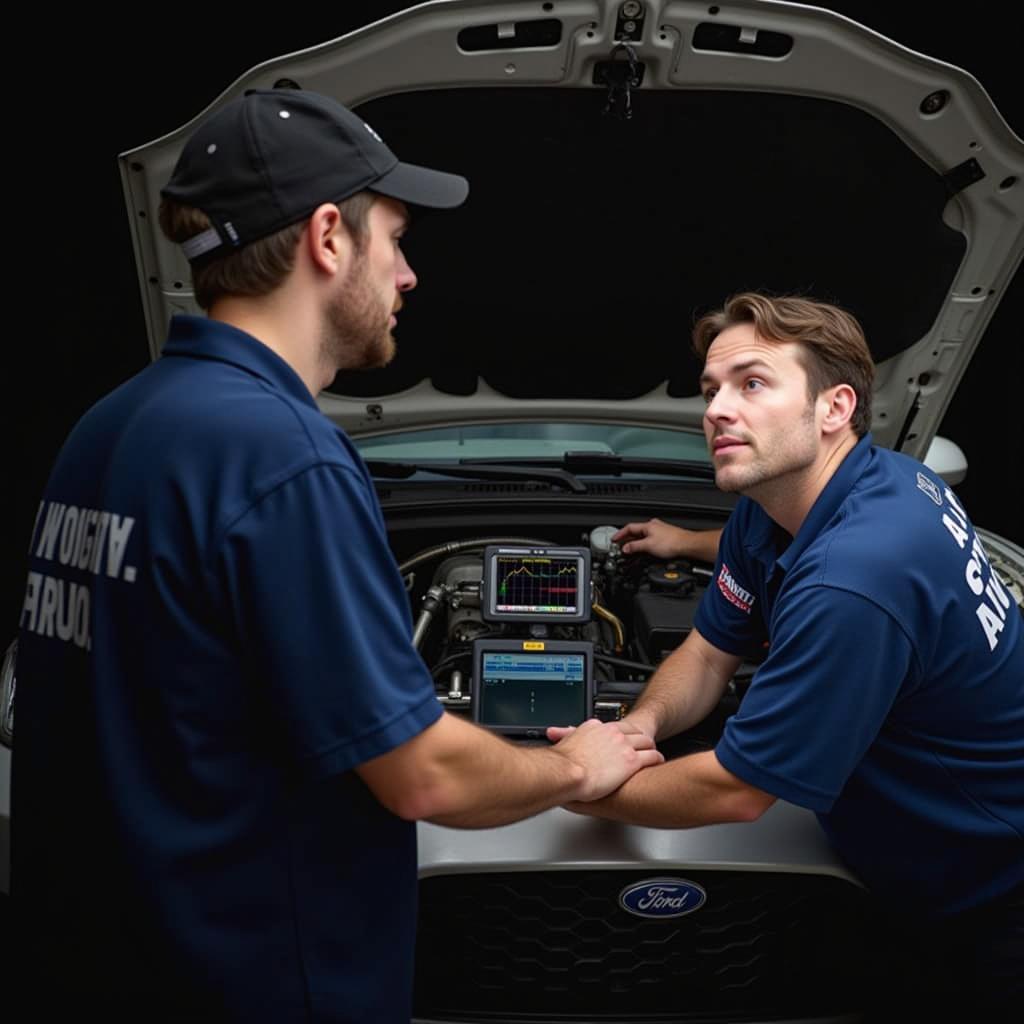Your cart is currently empty!

Troubleshooting Ross Tech Misfire Codes: A Comprehensive Guide
A misfire is a common engine problem that can be frustrating to diagnose and repair. When your engine misfires, it means that one or more cylinders are not firing properly. This can cause a variety of symptoms, such as rough idling, loss of power, and decreased fuel economy. If you’re experiencing misfires, a Ross-Tech scanner can be an invaluable tool in identifying and addressing the root cause.
 Ross-Tech Misfire Detection
Ross-Tech Misfire Detection
Understanding Ross Tech Misfire Codes
Ross-Tech, the company behind the popular VCDS (VAG-COM Diagnostic System) software, provides a powerful platform for diagnosing engine issues, particularly misfires. When a misfire occurs, your car’s engine control unit (ECU) logs a specific diagnostic trouble code (DTC) that pinpoints the cylinder and potential causes. Ross-Tech scanners excel at retrieving and deciphering these codes, giving you a head start in resolving the issue. For instance, a code like P0301 indicates a misfire in cylinder 1.
Using a Ross-Tech VW scanner allows you to access this information with ease, making the diagnostic process more efficient.
Common Causes of Misfires
Misfires can stem from a range of problems, and understanding the common culprits can save you time and effort during diagnosis.
- Ignition System Faults: A faulty spark plug, ignition coil, or worn-out spark plug wires can disrupt the spark delivery to the cylinders, leading to misfires.
- Fuel System Problems: Issues like a clogged fuel filter, malfunctioning fuel injector, or low fuel pressure can starve the cylinders of the necessary fuel for combustion, resulting in misfires.
- Air Leaks: Unmetered air entering the engine through a vacuum leak or a faulty intake manifold gasket can disrupt the air-fuel mixture, causing misfires.
- Mechanical Issues: More serious mechanical problems like low compression due to worn piston rings, burnt valves, or a faulty timing belt can also lead to misfires.
Using Ross Tech to Diagnose Misfires
A p0301 Ross Tech code, for example, immediately tells you that cylinder 1 is experiencing misfires. However, the true power of Ross-Tech lies in its ability to provide additional data that helps you pinpoint the root cause:
- Freeze Frame Data: This snapshot of the engine’s operating conditions at the time of the misfire can provide crucial clues about the potential cause. Parameters like engine speed, coolant temperature, and throttle position can help you narrow down the possibilities.
- Misfire Count: Ross-Tech can display the number of misfires recorded for each cylinder. This information can help determine if the problem is intermittent or constant, which can be valuable during diagnosis.
- Live Data: Monitoring live data streams like ignition angle, fuel trim values, and oxygen sensor readings while the engine is running can provide real-time insights into the engine’s behavior and help isolate the source of the misfire.
“Think of Ross-Tech as your car’s translator,” explains John Miller, a seasoned automotive engineer with over 20 years of experience. “It translates the complex language of your car’s computer into understandable data, empowering you to make informed decisions about repairs.”
Steps to Troubleshoot Misfires with Ross Tech
- Read the Codes: Connect your Ross-Tech scanner and retrieve all stored DTCs and freeze frame data. Note down any other codes present, as they might be related to the misfire issue.
- Inspect the Basics: Before diving into complex diagnostics, visually inspect the spark plugs, ignition coils, and wires for signs of wear, damage, or fouling. Check for loose connections and vacuum leaks.
- Analyze Live Data: Monitor relevant live data streams while the engine is running to observe the behavior of the ignition system, fuel system, and sensors. Pay close attention to parameters that deviate from their normal ranges.
- Test Components: Use the Ross-Tech scanner to perform output tests on components like the ignition coils and fuel injectors. These tests can help isolate faulty components.
- Address Mechanical Issues: If basic checks and tests don’t reveal the culprit, further investigation into potential mechanical problems like compression loss or timing issues is necessary.
Preventing Future Misfires
While diagnosing and fixing misfires is crucial, preventing them altogether ensures the longevity and performance of your engine.
- Regular Maintenance: Adhering to your car manufacturer’s recommended maintenance schedule for spark plug replacements, fuel filter changes, and other tune-up procedures goes a long way in preventing misfires.
- Quality Fuel: Using high-quality fuel and avoiding contaminated fuel can help maintain a clean and efficient fuel system, reducing the chances of misfires due to fuel-related problems.
- Timely Repairs: Addressing minor engine issues promptly before they escalate into major problems can prevent a cascade of issues that might lead to misfires.
Conclusion
A Ross-Tech scanner can be an indispensable tool for diagnosing and resolving misfires in your vehicle. By understanding the common causes of misfires, leveraging the advanced features of Ross-Tech, and following a systematic troubleshooting approach, you can effectively pinpoint and address the root cause of your engine woes.
“Remember, prevention is key,” reminds John Miller. “Regular maintenance and addressing small issues early on can save you from the headache and expense of major engine repairs down the road.”
Need help troubleshooting a Ross-Tech misfire code? Contact the experts at VCDStool at +1 (641) 206-8880 and our email address: vcdstool@gmail.com or visit our office at 6719 W 70th Ave, Arvada, CO 80003, USA.
by
Tags:
Leave a Reply